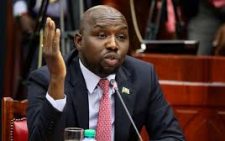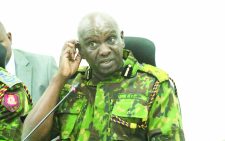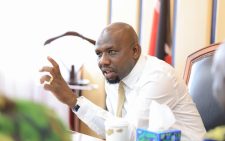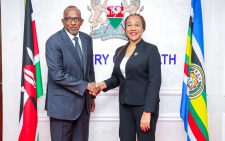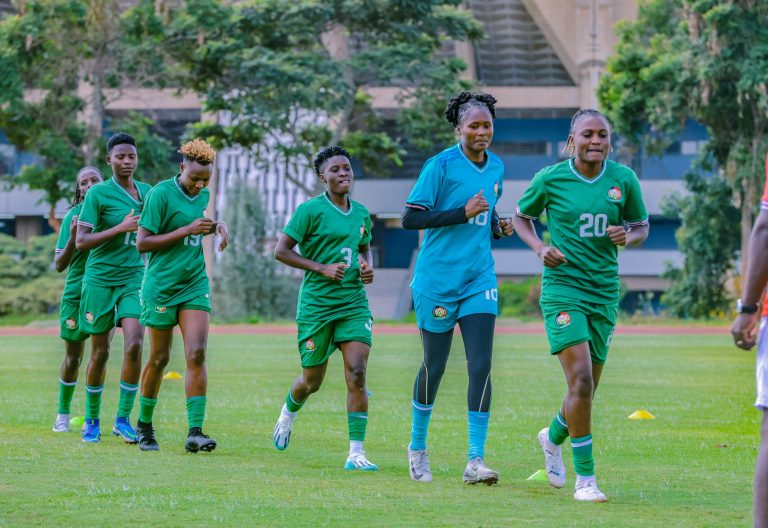Tribute to Nyachae who made me appreciate public service
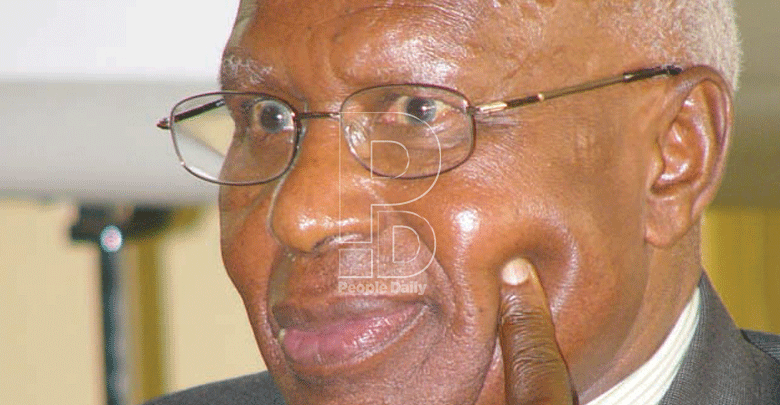
I have three memories about Simeon Nyachae—who died last week—that remain embedded in my mind.
The first was in 1986, while attending the then compulsory three months para-military training programme for pre-university students at the National Youth Service (NYS) Training School at Gilgil.
Nyachae came to speak to students poised to join university in September that year, amomg a team of leaders to deliver a series of lectures to pre-campus students as part of the training programme.
I remember Nyachae in his capacity as the Chief Secretary in the Civil Service, pointing out the importance of education, saying the government needed well educated and well-trained people, to manage the increasingly complex issues that the environment imposed on it.
His lecture left a strong impression on my mind. It gave me the impression that civil servants have awesome responsibilities towards the wellbeing of the country and its people; that the responsibilities need expert skills and that the school system—exists to prepare children and young people for the responsibilities of adulthood.
It is that 1986 speech at Gilgil, more than anything else, that has made me always look to public offices in terms of the awesome responsibilities bestowed upon them.
The second encounter with Nyachae was in 1993. He had been invited to attend a function in the Kesses area, not far from Moi University, in Uasin Gishu county.
That was the year the implementation of the Structural Adjustment Programme (SAPs) were full-blown, as the government had liberalised grain, the market and other agricultural products locally produced.
Liberalisation of the economy had left maize farmers in the country without a steady market for their produce.
Farmers at the Kesses function had expressed anxieties now that the National Cereals and Produce Board (NCPB) could no longer absorb their full produce.
Nyachae responded to the issues that the farmers had raised saying the liberalisation of the grain market was conditioned by SAPs.
He, however, said the government, would make NCPB a strategic reserve for food security and not a market outlet for farmer.
I remember him saying the sugar industry was facing similar problems of liberalisation but said the government, would only allow imports of sugar, to make up for the deficit in domestic production of Sugar.
The gentleman had information at his fingertips, about the stress SAPs was causing maize farmers and farming in general.
And he ably articulated them, apart from saying the government had come up with strategies to minimise the debilitating impact of the programmes in agriculture and other sectors of the economy.
Once again, I discerned responsibilities that lie in public offices at that function.
And thirdly, and by no means least indelible memory I have about Nyachae, was in the protracted teachers strike in 1997.
Although he was not the Minister for Labour, the industrial action by teachers indirectly fell into his docket.
At the end, as Minister for Finance at the time, he would be the one charged with the ultimate responsibility to determine whether to accede or not to teachers demands.
The teachers, under the auspices of the Kenya National Union of Teachers (Knut) went on strike when the government expressed reservations about the 200 per cent salary increment demand they had made.
That was the year for General Elections. The then President Daniel Arap Moi weighed in on the demands during a public holiday—Kenyatta Day, saying that the government didn’t have money to meet Knut demands. I recall an angry Moi saying in Kiswahili, hakuna pesa, hakuna pesa, hakuna pesa.
A few days later, the government announced that it would after all pay the 200 per cent salary increment to teachers but with a caveat: it would stagger the payment in phases over five years.
In watching Nyachae and recollecting these three incidents, I see duty, I see responsibility.
I see the burdens the government and public officers bear in securing the safety and well being of citizens of a country.
I see; courtesy of Nyachae—that assuming responsibilities for the lives, fortunes and the happiness of other people is not a walk in the park.
To be appointed to any of the offices is an honour and a trust. Duty, honour and courage is what society calls on you during the tenure of the appointment.
That is an insight I got from Nyachae from the three incidents. Adieu Simeon Nyachae. — The writer is Communications Officer, Ministry of Education


